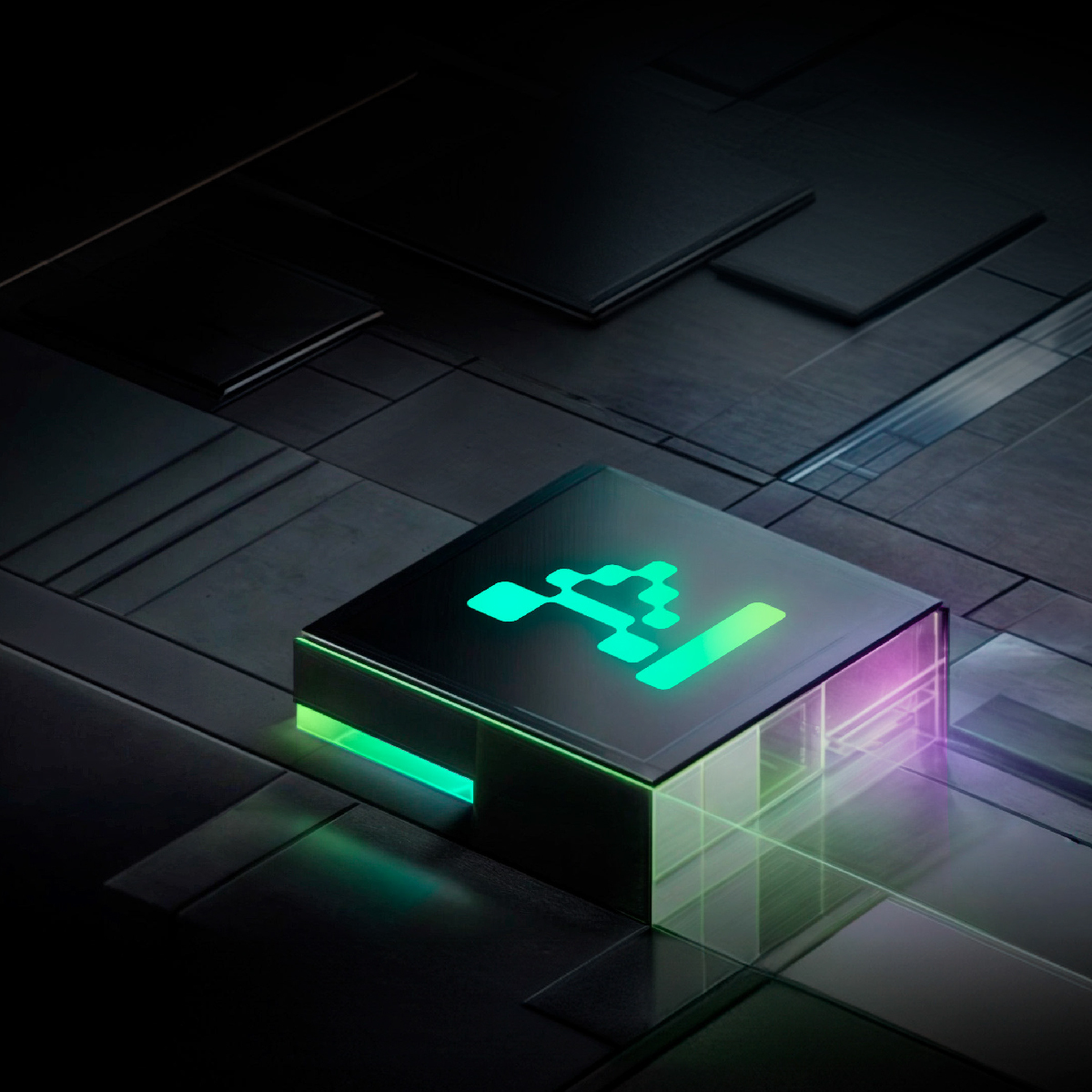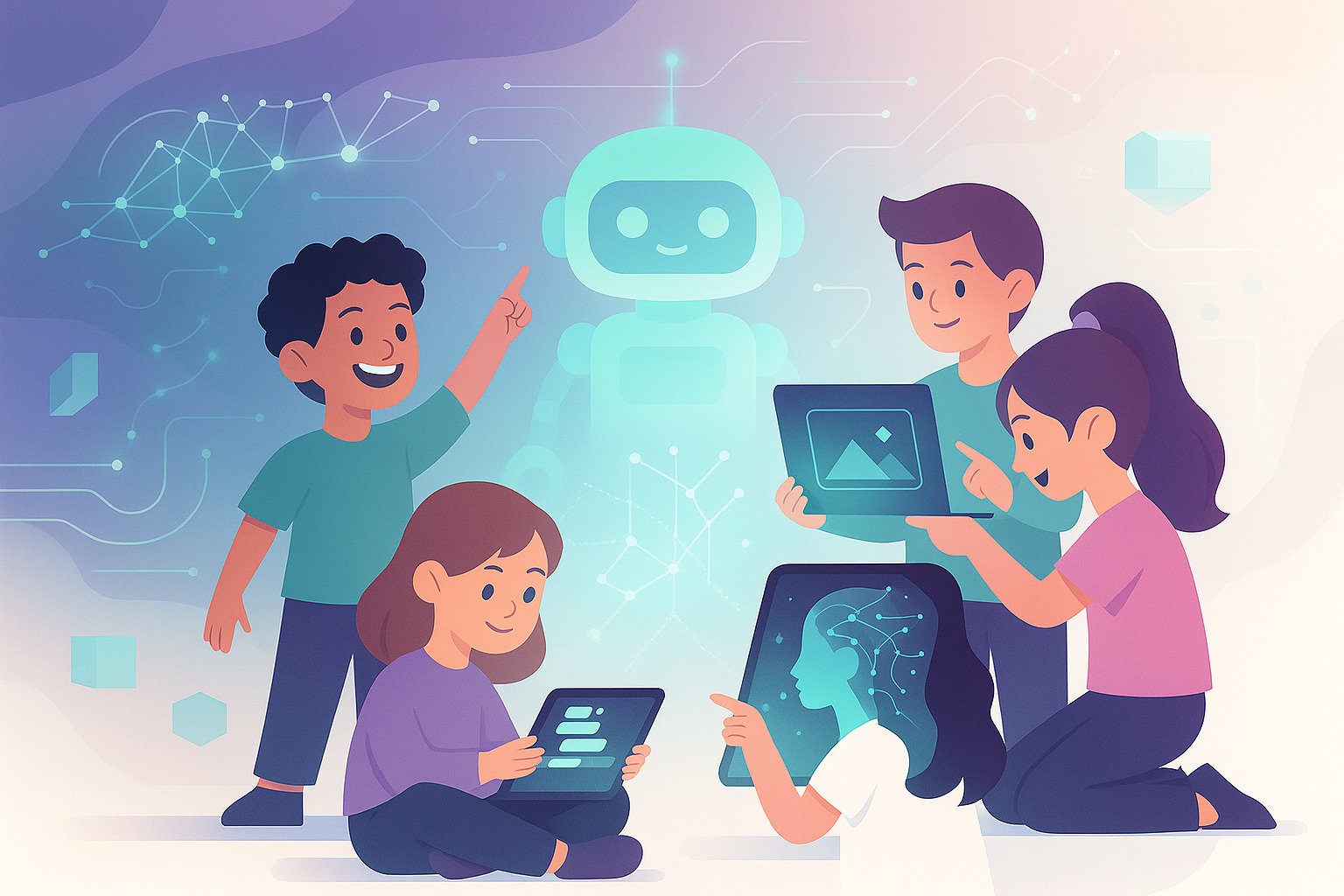Join our newsletter



This month, we're raising awareness about childhood development in our digital age. As AI-first developers, we see how kids navigate the internet today - often unsupervised, facing risks we're still understanding, but also unlocking incredible learning opportunities. The question isn't whether to give them access, but how to guide them toward using these powerful tools for good.
86% of students are already using AI for schoolwork, while teen usage jumped from 37% to 77% in just one year. Your kids aren't waiting for permission.
They're experimenting. Learning. Sometimes stumbling... And as technology-related people building AI-first solutions, you understand the exponential power of these tools better than most. Your technical expertise positions you perfectly to bridge the gap between AI innovation and responsible childhood development.
Your kids will inherit the systems we build today.
Start with AI literacy, not AI tools. Explain how computers "learn" through simple analogies. Show them how recommendation engines work by discussing why YouTube suggests certain videos. Create curiosity about the technology behind their favorite apps.
Practical tip: Use age-appropriate coding games like Scratch Jr. to introduce algorithmic thinking before introducing AI concepts.
Teach them to spot AI in the wild. Point out smart assistants, recommendation systems, and automated features they encounter daily. Explain how these systems learn from data and make predictions.
Real-world exercise: Have them identify 5 AI-powered features in apps they use, then discuss how each one helps or might mislead users.
Introduce supervised AI tool usage. Choose age-appropriate platforms with strong safety features. Focus on creative applications like image generation or writing assistance for school projects.
Safety protocol: Always review outputs together. Discuss hallucinations and biases. Teach them to fact-check AI-generated content.
Develop their AI skepticism muscle. Discuss ethical implications. Explore bias in training data. Analyze how AI decisions impact different communities.
Advanced project: Challenge them to build a simple ML model using platforms like Teachable Machine to understand training processes firsthand.
Prepare them for an AI-integrated workplace. Discuss career paths that leverage human-AI collaboration. Explore emerging fields at the intersection of technology and society.
Red flags: Unsupervised access to unrestricted AI chatbots, AI tools for academic cheating, platforms without content moderation
✓ Audit your home's AI-powered devices and apps
✓ Create family guidelines for AI tool usage
✓ Schedule monthly "AI show-and-tell" sessions
✓ Find one age-appropriate AI learning resource per child
✓ Connect with other tech parents building AI-ready kids
Your technical background gives your family a massive head start. By 2030, AI will score half of all college essays. The kids who understand these systems today will shape tomorrow's AI-first world.
Start building that foundation now.
Every chess master was once a beginner who kept playing.
Ready to share strategies with fellow developers raising the next generation? Join our community discussions about responsible AI development and parenting at the intersection of technology and family life.
Hit share on this guide. Everyone, and your future AI-native kids, will thank you. If you have any questions, contact us.